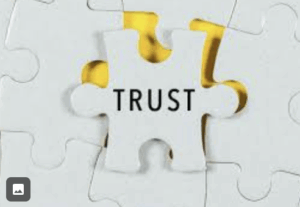In today’s world, dating has evolved drastically due to the rise of digital platforms, changing social norms, and an increasingly fast-paced lifestyle. While these changes have made it easier than ever to meet new people, they have also introduced new challenges that can take a toll on mental health. From the superficial nature of dating apps to the pressures of maintaining an online image, modern dating presents unique obstacles that can lead to anxiety, stress, and feelings of inadequacy. In this blog post, we’ll explore the complexities of modern dating, examine its impact on mental health, and provide strategies for maintaining emotional well-being while navigating the dating landscape.
The Complexities of Modern Dating
Modern dating is characterized by an array of technological and social changes that have fundamentally altered how people connect. These changes have brought about both positive and negative effects, particularly on mental health. Here’s a closer look at some of the key complexities involved:
Dating Apps and Online Platforms
Dating apps like Tinder, Bumble, and Hinge have revolutionized how people meet, offering an unprecedented level of convenience. With just a swipe, you can connect with someone who shares your interests or physical preferences. However, this convenience comes with its own set of challenges. The vast number of potential matches can lead to what is often termed “choice overload,” where the sheer volume of options makes it difficult to commit to any one person. Additionally, the emphasis on appearance and quick judgments based on profiles can reduce individuals to mere commodities, leading to feelings of dehumanization and a focus on superficial qualities over deeper connections. Moreover, the ease with which people can unmatch or ghost one another fosters a culture of disposability, contributing to a sense of instability and insecurity in the dating process.
Social Media and Comparison
Social media has become an integral part of modern dating, with platforms like Instagram, Facebook, and Snapchat playing a significant role in how we present ourselves and perceive others. While these platforms allow for greater connectivity and self-expression, they also promote a culture of comparison that can be damaging to self-esteem. Seeing carefully curated images of others’ seemingly perfect lives and relationships can lead to unrealistic expectations and a distorted sense of reality. This phenomenon, often referred to as “compare and despair,” can make individuals feel inadequate or less successful in their own dating lives. The pressure to maintain a certain image online can also cause stress and anxiety, as individuals may feel compelled to present an idealized version of themselves rather than embracing their true selves.
Fear of Missing Out (FOMO)
The fear of missing out (FOMO) is a pervasive issue in modern dating, exacerbated by the abundance of choices available through dating apps and social media. FOMO can manifest in various ways, from the anxiety of choosing the wrong partner to the reluctance to commit to a relationship out of fear that a better option might come along. This fear can lead to a cycle of dissatisfaction and perpetual searching, where no relationship ever feels good enough. FOMO can also cause individuals to engage in unhealthy behaviors, such as constantly checking dating apps or social media for new potential partners, leading to increased stress and a sense of inadequacy.
Casual Dating Culture
The rise of casual dating and hookup culture has changed the expectations and norms around relationships. While casual dating can be liberating for some, allowing them to explore different connections without the pressure of commitment, it can also leave others feeling unfulfilled and emotionally disconnected. The lack of emotional intimacy and the transient nature of these encounters can lead to feelings of loneliness, emptiness, and even depression. For those seeking deeper connections, navigating a dating culture that often prioritizes short-term interactions over long-term relationships can be frustrating and disheartening.
The Impact of Modern Dating on Mental Health
The complexities of modern dating can have profound effects on mental health, often leading to increased anxiety, stress, and lowered self-esteem. Understanding these impacts is crucial for maintaining emotional well-being in today’s dating world:
Increased Anxiety and Stress
The fast-paced nature of modern dating, coupled with the pressure to find the “perfect” partner, can lead to significant anxiety and stress. Dating apps, with their endless options, can create a sense of urgency and competition, as individuals feel they must constantly be on the lookout for potential matches. This can result in feelings of inadequacy, as people compare themselves to others or worry about how they are perceived. The uncertainty and ambiguity often associated with online dating—such as not knowing if someone is truly interested or when they might stop responding—can exacerbate these feelings, leading to heightened anxiety and stress that can spill over into other areas of life.
Lowered Self-Esteem
Modern dating can take a toll on self-esteem, especially when individuals face repeated rejection or experience ghosting. The superficial nature of dating apps, where judgments are often made based on appearance alone, can make people feel reduced to a single image or profile, leading to feelings of worthlessness or insecurity. Additionally, the culture of comparison fostered by social media can contribute to low self-esteem, as individuals measure their own lives and relationships against the seemingly perfect lives of others. This constant comparison can create a negative self-image, making it difficult to maintain confidence in one’s own worth and desirability.
Loneliness and Isolation
Despite the increased connectivity that technology provides, many people report feeling lonelier than ever in the context of modern dating. The transient nature of online interactions, coupled with the emphasis on casual encounters, can leave individuals feeling disconnected and unfulfilled. Even when surrounded by potential matches, the lack of meaningful connections can lead to a deep sense of loneliness and isolation. This is especially true for those who crave deeper, more intimate relationships but struggle to find them in a culture that often prioritizes quick, casual interactions over long-term commitment.
Emotional Burnout
The cycle of excitement, rejection, and starting over in the dating world can lead to emotional burnout. Constantly engaging in the dating process—swiping, messaging, meeting new people—can be exhausting, especially when the results are not as fulfilling as hoped. This burnout can result in a loss of motivation to continue dating, as well as feelings of cynicism or hopelessness about finding a meaningful relationship. Emotional burnout can also impact other areas of life, leading to decreased productivity, mood swings, and a general sense of fatigue.
Strategies for Maintaining Mental Health in the Dating World
While the challenges of modern dating are real, there are effective strategies you can employ to protect your mental health and foster positive experiences:
Set Clear Boundaries
Establishing clear boundaries around your time, energy, and emotional investment is crucial for maintaining mental health while dating. This means being mindful of how much time you spend on dating apps and ensuring that it doesn’t interfere with other important aspects of your life, such as work, hobbies, or relationships with friends and family. Setting boundaries also involves recognizing when a particular dating experience or person is not healthy for you and having the courage to step away. By prioritizing your well-being, you can prevent burnout and maintain a healthier perspective on dating.
Practice Self-Compassion
Dating can be a vulnerable experience, and it’s important to treat yourself with kindness and understanding, especially in the face of rejection or disappointment. Practicing self-compassion involves recognizing that everyone experiences setbacks in dating, and these setbacks do not define your worth. Instead of engaging in negative self-talk or blaming yourself for perceived failures, try to view each experience as an opportunity for growth and learning. This mindset can help you maintain a positive outlook and build resilience in the face of challenges.
Focus on Authentic Connections
Rather than chasing after as many matches as possible, focus on building authentic connections with people who share your values and interests. This means being selective about who you engage with and prioritizing meaningful conversations over superficial interactions. By seeking out deeper connections, you’re more likely to find relationships that are fulfilling and emotionally satisfying. Additionally, being authentic in how you present yourself—both online and in person—can help attract people who appreciate you for who you truly are, leading to more genuine and lasting connections.
Manage Expectations
It’s important to keep your expectations realistic and avoid placing undue pressure on yourself or potential partners. Not every date will lead to a long-term relationship, and that’s okay. By managing your expectations, you can approach each dating experience with an open mind and a sense of curiosity, rather than focusing solely on the outcome. This can reduce stress and allow you to enjoy the process of getting to know new people, without the burden of unrealistic expectations.
Take Breaks When Needed
If you find that dating is becoming overwhelming or stressful, don’t hesitate to take a break. Stepping away from dating apps or social activities for a period of time can help you recharge your emotional batteries and gain perspective. Use this time to focus on self-care, pursue hobbies, and strengthen other relationships in your life. Taking breaks can prevent burnout and help you return to the dating world with renewed energy and a clearer sense of what you’re looking for in a partner.
Seek Support
If modern dating is significantly affecting your mental health, consider seeking support from a therapist or counselor. Individual psychotherapy can help you explore your feelings, develop coping strategies, and build self-confidence in the dating world. A therapist can also provide valuable insights into your dating patterns and help you make healthier choices that align with your goals and values. By seeking support, you can navigate the dating landscape with greater resilience and a stronger sense of self-worth.
Conclusion
Modern dating, with all its complexities and pressures, can have a significant impact on mental health. However, by understanding the challenges and adopting healthy strategies, you can navigate the dating landscape with greater confidence and resilience. Remember that your mental health is paramount, and taking steps to protect it will lead to more positive and fulfilling dating experiences.
At Kingston & Co Counseling, we are dedicated to supporting you through the ups and downs of modern dating. If you need help managing the emotional challenges that come with dating, please contact us to learn more about our services or to schedule an appointment. We are here to help you every step of the way.







